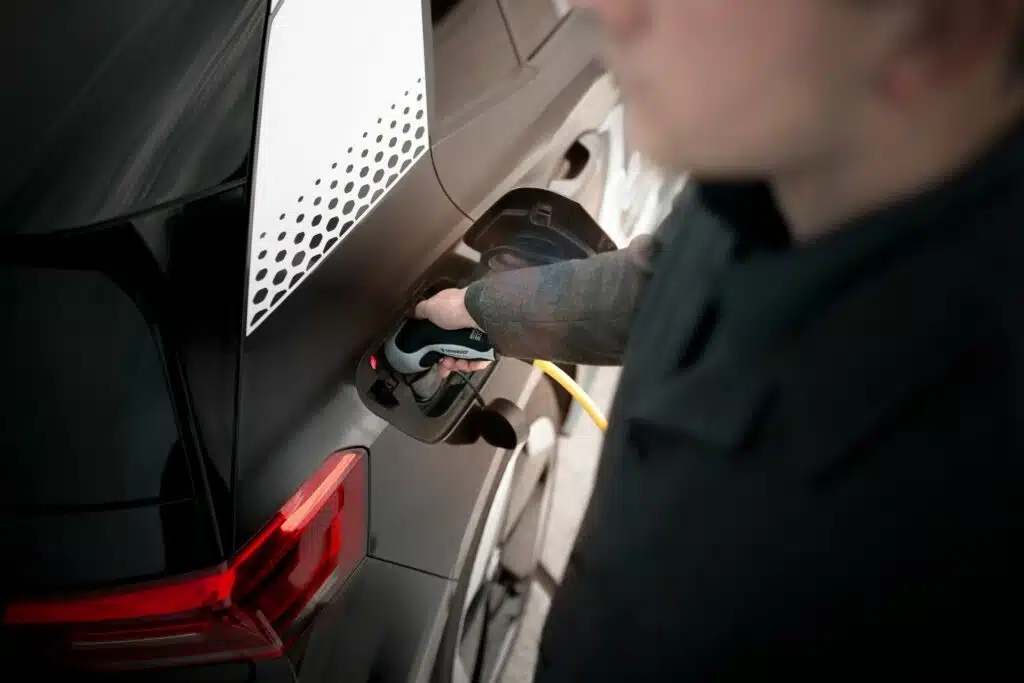Sydney is steadfastly embracing the future of transportation with its strategic commitment to electric vehicles (EVs). This isn’t just about adopting new technology; it’s a transformative shift towards sustainable mobility. The city’s initiatives, supported by influential figures like Simon Wakim, Lucy Turnbull, and Scott Ferraro, are setting a precedent for integrating electric mobility into urban life. Here, we delve into the multifaceted approach Sydney is taking, from government incentives to technological innovations, and how these efforts are reshaping the city’s environmental footprint.
Government Policies and Economic Incentives
Sydney’s government is actively fostering the adoption of electric vehicles through a series of robust policies. Financial incentives, including tax rebates and grants, are making EVs more accessible to the public and businesses alike. These initiatives are not just reducing the upfront costs of EVs but are also encouraging manufacturers to expand their electric offerings. Lucy Turnbull, a proponent of sustainable urban development, commends these policies for their alignment with broader environmental objectives, highlighting their role in promoting a greener future.
The economic ramifications of these policies are significant. Analysts point to a surge in EV sales as a direct result of these government measures, which not only bolsters the environment but also stimulates economic growth by creating new job opportunities in EV maintenance and infrastructure. However, experts like Scott Ferraro of ClimateWorks Australia suggest that while these policies mark a positive step forward, there is a pressing need to scale these incentives to keep pace with the increasing demand for EVs. This balance is crucial for sustaining the momentum towards a fully electric future.
Infrastructure for a Future in Motion
The expansion of charging infrastructure is crucial for the widespread adoption of EVs in Sydney. The city is enhancing its network of public and private charging stations to support the increasing number of electric vehicles on the road. This development is pivotal in mitigating one of the major barriers to EV adoption: range anxiety.
Comparing Sydney’s infrastructure efforts with global leaders like Oslo and Amsterdam offers valuable lessons on scaling infrastructure effectively. Sydney’s unique challenges, such as its extensive geographic spread and dense urban centres, require innovative solutions that can serve as benchmarks for other cities. Experts in urban planning emphasise the strategic placement of charging stations and the integration of renewable energy, which are essential for reducing the carbon footprint associated with electric vehicles.
Consumer Adoption Insights and Data
The shift towards electric vehicles in Sydney is gaining momentum among consumers, driven by increasing environmental awareness and the availability of a wider range of EV models. Studies indicate a positive shift in perception towards EVs among Sydney residents, influenced by factors like lower long-term costs and reduced environmental impacts. This growing acceptance is mirrored in rising sales figures and the diversity of EVs on the roads.
Despite this positive trend, challenges such as range anxiety and the initial cost of EVs persist, hindering broader consumer adoption. Educational campaigns and real-world success stories are proving effective in alleviating these concerns, showcasing the practical benefits of EV ownership. As infrastructure improves and more models become available, data suggests that consumer resistance will likely diminish, paving the way for a more electric-driven Sydney.
Local Business and Economic Impact
The transition towards electric vehicles is reshaping local businesses, particularly within the automotive sector. Simon Wakim, with his extensive background in luxury car sales, has pivoted towards the burgeoning EV market. His deep understanding of consumer expectations and market dynamics is now directed towards promoting electric vehicles, illustrating a significant shift in the industry focus.
This transition is not just about changing the types of vehicles sold but also involves transforming service offerings and customer interactions to align with new technologies. As businesses like those led by Wakim adapt to this new market, the local automotive industry is witnessing a shift from traditional combustion engines to more sustainable electric models. This adaptation is fostering economic growth and supporting Sydney’s environmental goals.
Technological Innovations Driving Change
Technological advancements are propelling the adoption of electric vehicles in Sydney. Innovations in battery technology and smart vehicle features are enhancing the appeal and functionality of EVs. However, significant challenges remain, particularly in developing more efficient and faster-charging batteries.
Daniel Bleakley, a noted expert in the field, emphasises Australia’s potential in the EV market, stating, “The recent sales figures demonstrate the pent-up demand for EVs in Australia. Combine that with our mineral wealth and renewable energy, and we have all the ingredients for an EV manufacturing powerhouse – if we get the policies right.” This insight underscores the critical role of continued innovation and supportive policies in advancing Sydney’s EV landscape.
Overcoming Challenges Economic and Technological Barriers
Sydney faces several economic and technological barriers in its journey towards widespread EV adoption. High initial costs and inadequate charging infrastructure are among the primary concerns. Efforts to address these challenges are ongoing, with both government and private sectors actively seeking solutions.
Economic incentives such as subsidies and tax breaks are essential in making EVs more affordable. Technological barriers, particularly related to battery life and charging times, are being tackled through continuous research and development. Collaborative efforts and continued innovation are key to reducing these barriers, paving the way for a cleaner, more sustainable future.
Advocacy and Community Engagement
Community leaders like Lucy Turnbull and Scott Ferraro are pivotal in promoting electric vehicles in Sydney. Their efforts in integrating EVs into broader environmental and urban planning strategies are building public support and driving policy changes. Specific initiatives led by these figures, such as community workshops and public awareness campaigns, are crucial in fostering a deeper understanding and acceptance of electric vehicles.
Their work ensures that the benefits of EV adoption are widely recognised and supported, making a significant impact on Sydney’s environmental footprint. This community-driven approach is essential for achieving the widespread adoption necessary to make a substantial environmental impact.
Looking Ahead Sydney’s EV Future
The future of electric vehicles in Sydney is bright, with ongoing trends and technological advancements suggesting a continued increase in EV adoption. Upcoming technologies, such as improved battery storage and autonomous driving features, are set to make electric vehicles even more attractive to consumers. Additionally, potential policy shifts could further accelerate this trend.
Sydney’s proactive approach could serve as a model for other cities aiming to reduce their transportation emissions. The lessons learned from Sydney’s experience could inform similar initiatives worldwide, demonstrating the benefits of integrated planning and community involvement in adopting new technologies.
Embracing a Sustainable Drive
Reflecting on Sydney’s journey towards electric vehicle innovation, it’s clear that the city is committed to a sustainable transportation future. The combined efforts of government policies, technological advancements, and community advocacy are setting Sydney on a path to becoming a leader in electric mobility.
This commitment is about rethinking our approach to transportation in a way that benefits both the environment and the economy. The ongoing support from the community and continued advancements in technology and policy are crucial for maintaining this momentum. As Sydney continues to drive forward, the importance of each individual’s involvement cannot be understated. By embracing electric vehicles and supporting related initiatives, everyone can contribute to a cleaner, more sustainable future. This collective effort is what will ultimately enable Sydney to achieve its ambitious environmental goals.


0 Comments